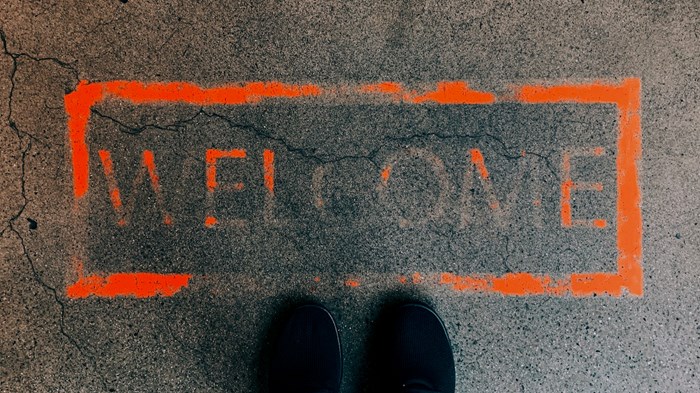On Migrants and Immigration: What Are We Afraid Of?

In December, a month before President Biden’s visit to the border, I stood in the same spot with Christian leaders from the Church Ambassadors Network, World Relief, and Abara Frontiers. However, while our location may have been the same, our conclusions were much different.
In President Biden’s news conference after his visit, he mentioned increasing humanitarian parole for Cubans, Nicaraguans, and Haitians (a good thing) but also rejecting anyone who has crossed the border from those countries seeking asylum.
Americans don’t understand US immigration policy, so how could people fleeing terrible things from other countries understand it? With empathy, we could ask ourselves why we question vulnerable people fleeing terrible things from other countries? Why would we prevent people from accessing their right to seek asylum for any other reason other than politics?
And I keep asking myself a more unsettling question this evening: What are we afraid of?
Understand the reality of their lives
In August, I was in Cuba on a long-anticipated trip. While I was there, I saw bread lines for the first time in my life. I intended to shop for groceries for our Airbnb but couldn’t. People waited in the 90+ degree heat, sitting on the dirty streets of Havana for 3-4 hours a day, just to be allowed into empty grocery stores. My British friend and I looked into the windows as we were stopped from entering and pointed towards the enormously long queue, and we couldn’t even see food we wanted to buy. We used our strong currencies to go out for every meal—a luxury no Cuban could ever afford.
Later in the trip, one Cuban related how stressful his own hosting of an Airbnb was and how long it took him each day to procure items for breakfast each day. Hours for a few eggs here. Maybe a little bit of butter there. Our taxi drivers stopped over and over, looking for fuel but finding empty petrol stations. We heard of protests about the lack of electricity, experienced no electricity for 15 hours on our last day there, and finally decided to leave early rather than get caught up in a righteous protest.
More than one Cuban told us, “Why would anyone stay? There is nothing here. If you are young enough and have the option of leaving, you should go.”
Scarcity of food, electricity, work, a currency that tanked the day before we arrived, and a government that jails protestors made an understandably dire set of conditions. After the trip, the increasing numbers of Cubans coming to the border made sense.
In November, I met a man named Israel on the streets of D.C. I realized he was one of the asylum seekers that Texas’ Governor Abbot had bused to the capital. My colleague and I looked through his paperwork, which was stamped with “humanitarian parole” and adjudicated from south Texas with orders to appear at court to plead his asylum case within the year. Since November, I have kept in touch with Israel as he has struggled for housing. I found out he was a follower of Jesus like me. Left to navigate our asylum system alone, he messages asking for help finding a job. But knowing he can’t even work for five months, my heart is heavy every time he reaches out.
Leaving El Paso after my border visit in December, I sat next to two twenty-somethings from Nicaragua. It was their first flight. Putting my poor Spanish into practice, I deduced they must have come on foot or train through Mexico and might be asylum seekers. We chatted throughout the flight and they eagerly said they were college students and showed me their student ID’s from Nicaragua. When I asked if they were seeking asylum, they said they were on their way to Florida to go to school and stay with relatives. As they left the flight, I saw them walk out of the airport with no luggage and realized they might have shame about seeking asylum.
I thought of the reports I have seen about Nicaraguan journalists fleeing the country after the country begain jailing all of their journalists this year. Nicaragua's President/Dictator Ortega closed eight private universities this year and kept their assets. His crackdown on university student protests and attacks on higher education has driven college students to flee the country. I think about the preciousness of our freedom of the press, religion, assembly, and why our central American neighbors are fleeing their countries in hunger. They lived without freedoms that we count as precious, so I can understand why they are leaving.
Uphold the reason for asylum laws
And then I get another newsletter from a Representative talking about "the fentanyl crisis coming from those crossing our border" and I am just disappointed.
Addiction is real; it’s a tragedy. It has taken far too many Americans' lives. But it is not right that we blame asylum seekers and migrants for our addictions. Correlation is not causation. Our addictions have a lot of complex factors, and blaming people who are fleeing collapsed governments, hunger, and persecution is targeting the wrong enemy.
I spoke to a police officer in Ohio a few months ago who said that they have a weekend of overdoses every time Johnson and Johnson in Cincinnati releases a new batch of fentanyl. Yes, fentanyl comes through our southern border, but it is also sold by Americans who illegally sell their prescriptions in our cities.
Migrants are not bringing fentanyl into the country. Migrants are turning themselves in at our borders seeking asylum. As Americans, we need to address our loneliness and addictions, how we face pain as a country, and cartels. Blaming the Venezuelan mother seeking to alleviate her child's hunger or the Cuban teenager on our border won't actually save American lives.
We need to remember our ancestors, many of whom fled hunger in Italy and Ireland or persecution in Nazi Germany and the USSR. They sought hope and a better life, much like the people who are coming to our border today.
Congress and governors and the President need to stop playing partisanship and politicking over duty. We need to uphold the reason asylum laws were created in the first place in 1951: to provide a hope and haven for those fleeing unimaginable circumstances.
Christy Staats helps churches think about immigration through the lens of the Bible with the Evangelical Immigration Table. She is also a consultant who works with faith, law enforcement, and business leaders with the National Immigration Forum. Christy was a missionary with Cru for 15 years in the UK and closed countries, and is nearly finished with her Masters in Theology from TEDS.
The Better Samaritan is a part of CT's
Blog Forum. Support the work of CT.
Subscribe and get one year free.
The views of the blogger do not necessarily reflect those of Christianity Today.





















